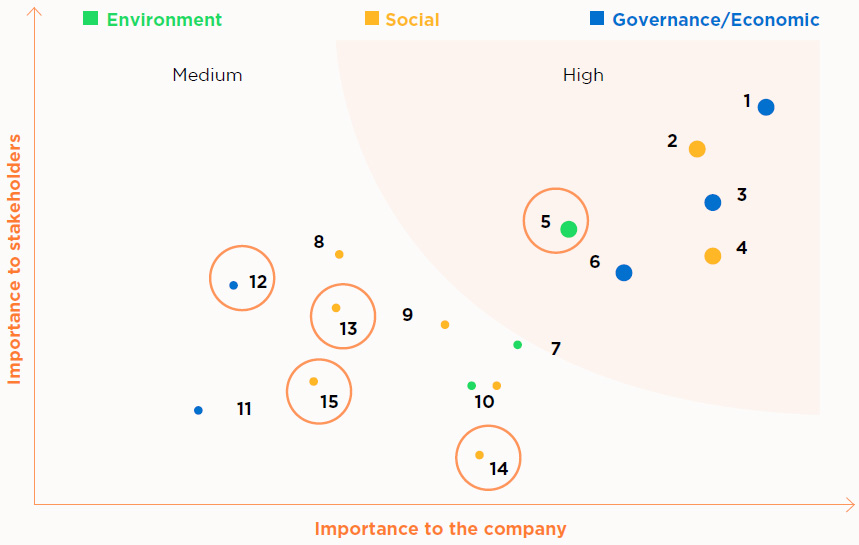To achieve long-term success as a responsible and sustainable business, it is important to understand and resolve the material issues impacting our business.
Material issues are those areas that have a direct or an indirect bearing on our ability to create, preserve or deplete economic, environmental and social value for our business, our stakeholders and the society at large. In the context of sustainability, we define materiality by identifying the issues and focus areas perceived to be the most significant to our organisation and our stakeholders. We identify our relevant stakeholders through profiling and mapping exercises.
Identify
Material issues are determined through a wide range of inputs, including regulatory reviews, peer benchmarking and through stakeholder consultation
Prioritise
Material issues are prioritised in terms of their potential impact on business, external operating environment and key stakeholders
Validate
Validate with the management
Disclose
The most material topics are mapped to the relevant GRI standards indicators and their progress is disclosed

Note: Material issues in circles represent new material ESG issues that have emerged of high/medium importance to the business and its stakeholders.